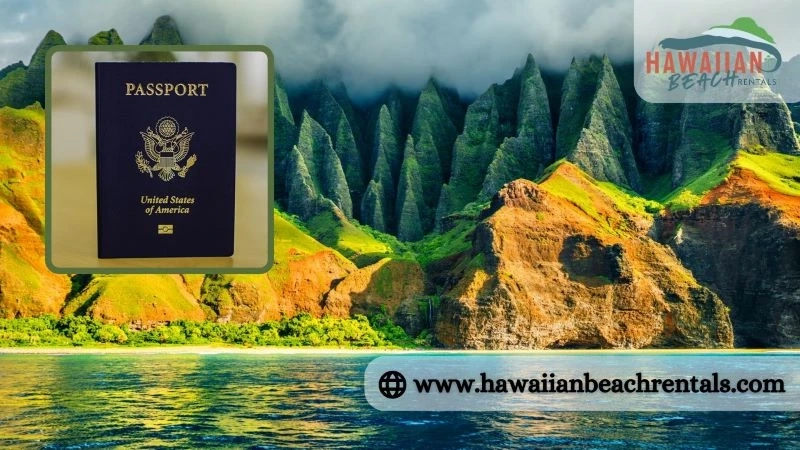If you're wondering if you need a passport to visit Hawaii, you're not alone. Because Hawaii has a distinct cultural identity that sets it apart from the United States mainland, this topic is often asked. Many tourists want further information regarding the prerequisites.
Hawaii may feel like a strange nation, but it is still the 50th state of the union, thus getting about is just like getting around anyplace else in the union. Hawaii is not a far-off place like a trip to Belize or an African safari. It is merely an additional US state situated in the centre of the Pacific Ocean. As a result, if you are a citizen of the United States, you can visit Hawaii without a passport. On the other hand, if you enter the United States through Hawaii after travelling abroad, you will need a valid passport. Make sure to verify the particular criteria for your location as some countries can still need extra papers for international travel.
An historical outlook on statehood
It's hardly shocking that a lot of individuals believe Hawaii to be a separate nation. Hawaii was formerly a sovereign, independent country called a monarchy that was overthrown in 1893 by corporate opportunists from the United States and Europe. The overthrow has been extensively chronicled over time, yet dispute still surrounds it. The legitimacy of the state was questioned at the time because the overthrow was not recognised. Native Hawaiians have since spoken out against the abuses that took place, and they are still fighting for the restoration of their own kind of independence.
Even while there will always be disagreements over history, some people find comfort in the fact that the US has officially apologised. The "Apology Resolution," which recognised the overthrow and the harm it caused to Native Hawaiians, was signed into law by President Bill Clinton in 1993.
Safeguard your passport and other important documents.
Remember that your passport, or any other form of documentation, serves as your principal means of identity, therefore keep it safe at all times. Make sure you scan your passport so you have a digital copy in case it gets misplaced. This holds true for every identity you possess. Taking pictures of your documents and storing them on your phone is quite simple. Simply put, it's a fantastic habit to form for travel in general.
The following advice can help you ensure the security of your documents:
Digital Backups: Email yourself or store electronic copies of your papers in a secure cloud storage provider. In the event of loss or theft, you can access them from any location with an internet connection thanks to this.
Make duplicates: Make digital scans or photocopies of your driver's licence, passport, visa, and any other necessary travel or identity documents before you depart. Keep these duplicates apart from the originals in storage.
Employ a Travel Organiser or Wallet: Invest in a travel wallet or organiser that can accommodate tickets, airline cards, passports, and other necessary paperwork. They frequently have RFID-blocking devices installed to prevent electronic theft.
Hotel Safe: When not in use, keep your passport, additional cash, and valuables in the hotel safe. When using the safe, make sure it's secure and request a receipt.
Have Necessities Nearby: When travelling, have your paperwork near at hand. To guard against pickpocketing, think about putting on a neck bag or money belt underneath your clothes.
Lock Your Baggage: To avoid unwanted access, secure your checked baggage with TSA-approved locks. Use a backpack or lockable zippered bag for carry-on luggage.
Steer Clear of Flashy Displays: Steer clear of showcasing pricey jewellery, sizable sums of cash, or gaudy electronics that could lure burglars.
Always Be Ready for Emergencies: Keep the contact details for the embassy or consulate of your nation with you when you travel. In the event that your passport is stolen or lost, this can be helpful.
Report Losses: As soon as possible, notify your embassy or consulate in addition to the local authorities if any of your documents are missing or stolen. They can offer advice on where to get new paperwork.
Is a passport required in order to travel to Hawaii? If you are a citizen of the United States, the answer is categorically negative. Enjoy this tropical haven while Hawaiian Beach Rentals arranges your ideal getaway.


